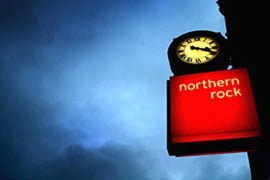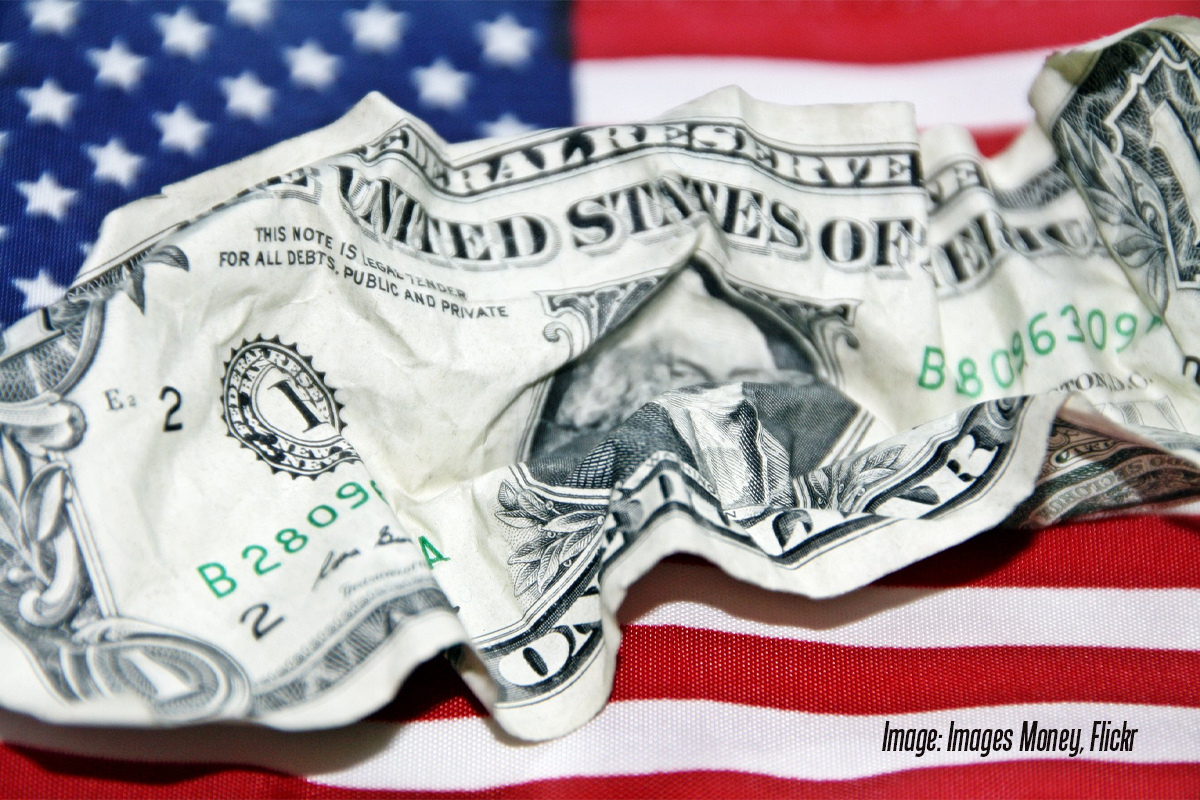A month ago we explained the dilemma that
semi-nationalisation of the banks poses. (See: Now nationalise the banks!)
“At the moment the British banks are making all kinds of ‘concessions.’ They’ll
do everything they have to in order to get their hands on our money. Bonuses
have been frozen, some failed executives have been shown the door, loans to
small business and homeowners are to be maintained and dividends are likely to
be restrained. But, once they’ve got our money in their pockets, they’ll sing a
different tune.
Since this is our money, we should be able to say:
·
We decide who the directors are
·
We decide on the salaries and the bonuses
·
We decide what they spend our money on
·
We don’t want our money leaching out to dividends to
private shareholders.
·
On repossessions, it would be grotesque for state
controlled banks to evict workers who can’t afford to pay their mortgages after
we have bunged billions at the bankers. Repossessed housing should become
public housing stock and their residents allowed to stay on as tenants.
This is not how private banks are usually run and how the
private sector would like them to be run.”
If the government really wanted to do a job for working
class people, it would have to confront the management of the banks on all
these issues. In fact it hasn’t even tried. Now the dust has settled, we can
see who has won. The bankers have won. It is true that some of the most useless
executives, such as Fred ‘the shred’ Goodwin of RBS have had to pack their
backs. Frankly a more alert bunch of shareholders should have dispensed with
his services long before, as he was driving their bank into the ground. But Fred’s
successors are cut from the same cloth. They are just as determined to grab our
money and run.
Darling witters on to the Treasury Select Committee that,
“We don’t expect many bonuses to be paid at all next year. The banks have a
different ‘expectation.’ They know better. The MPs on the Committee correctly
surmised that the taxpayer was being, “taken for a mug.”
Lloyds TSB are 40% government owned – effectively a
controlling interest. Chief Executive Eric Daniels tells top employees to
ignore his promise to the government not to waste our money on bonuses to their
top dealers. He proposes to pay some of the £5.5bn we’ve pumped into the bank
straight out again. Daniels asserts that effective government ownership won’t “have
an impact on our lending policies or conduct of business.” He continues, “The
first restriction was not to pay bonuses. Well Lloyds TSB is, in fact, going to
pay bonuses.” Two fingers up to Brown and Darling, and the rest of us, then.
So how is Lloyds TSB (due to merge with HBOS) intending to
make savings? At the expense of their staff. They propose to save £1.5bn by
making cuts in branches, call centres and IT, combining insurance sales teams
and stripping out wholesale banking.
This is just a small part of the picture of five major European
banks shovelling shovelling £9.25bn out to cover six-month staff bonuses and
other ‘costs’ to 72,000 investment bankers, while ordinary workers can go hang.
Darling has asked for ‘restrictions’ on boardroom pay. To
keep down inflated salaries, Brown and Darling rely on ‘moral suasion’. But the
bank bosses have no morals to speak of. They are totally ignoring the
government. New Labour wouldn’t say boo to a goose to these corporation bums.
Darling has also ‘demanded’ that the banks maintain their 2007
level of lending, especially to small business and home buyers. The banks would
be entitled to point out that it was lending other people’s money out like a
bunch of drunken sailors at the beginning of 2007 that triggered the financial
crisis.
But they don’t have to. The bankers know (as the Financial
Times gloats 04.11.08) that the assurance is meaningless. Lending levels
collapsed from the beginning of 2007 to the end, when the crisis bit, so
Darling’s request let’s them do exactly as they please.
Which bank is most ruthless in repossessing houses when
mortgagees have fallen on hard times? Northern Rock. Which bank is entirely
propped up by public money? Northern Rock. This is an outrage – that a publicly
owned bank is treating working class people like dirt and depriving them of the
right to a roof over their head.
There may be 40,000 repossessions next year. Brown is
pledging to curb them. How? Well, the Treasury has announced new protocols from
the Civil Justice Council to lay before the courts. The hard-faced bankers must
be quaking in their shoes at that.
At Lloyds TSB, Daniels’ strategy is to pay back the
government preference shares that are currently propping up the business in a
year or so. Then they can really party! Shareholder dividends, swollen bonuses,
and vast salaries will be dished out while the banks ruthlessly cut back loans
and repossess homes in honour of the new age of austerity.
Darling agrees with all this. He wants the government shares
to be bought back “as quickly as possible.” He is quoted as saying, “You can’t
have a bank that is run by a government.” (Scotland on Sunday 02.11.08) Hasn’t
he heard of the Bank of England – government owned and run since 1946? He goes
on, “Everyone is agreed that it would be disastrous to return to irresponsible
lending.” How can he stop that happening, unless the government takes control?
He is happy to tell the Scottish readers that he will make no effort to keep
jobs in Scotland – or south of the border. He is terrified that the government
stake puts him on the spot, and makes New Labour responsible for the way the
banks are behaving.
That is also what the bankers fear. Barclays Chief Executive
John Varley states of government money, “It would, as a shareholder, influence
our dividend policy; it would influence our lending policy; and it would become
involved in the formulation of policy. To spare his shareholders from this
fate, Varley has been passing the hat around Arab sheikhs and rich investors,
who now have the biggest stake in the bank. Merrill Lynch reckons this will
cost the shareholders an extra £3.2bn compared with money from the government,
but we are sure Varley has their best interests at heart.
The banks also made it clear in advance of the unprecedented
1½% cut in Bank Rate on November 6 that their customers would not necessarily
see the benefits passed on. The bank bosses correctly point out that the rate
at which banks lend to one another has not fallen by the same amount. We have
to ask, whose fault is that? Banking operations have simply seized up. That is
why the banks need to be owned and controlled by the working class.
So the banks didn’t want to pass on the cut in Bank Rate. Oh, no. The
banks have to recapitalise, you see. And they intend to recapitalise at the
expense of the taxpayers who have kept them in business. In the end they were
browbeaten, with a great deal of government grandstanding, into passing on the
entire rate cut. What generosity! They have retaliated by putting up rates on
credit cards to ‘compensate’. The average rate has gone up from 16.8% to 17.6%.
Some people are paying 69%!
The bank bosses have made it clear that this is the last time they will
cut rates with a cut in Bank Rate, which is what they are supposed to do in a
functioning banking system. The Guardian quotes a
senior banking source, who says this is the last time the banks would be
"brow beaten", and any further cuts wouldn’t be passed on. The ‘Evening
Standard’ ran the headline ‘Banks finally shamed into 1.5 per cent rate cuts’. When
the Mail group attacks capitalist institutions, their popularity has really
reached rock bottom.
Half of borrowers are on fixed rate mortgages, so they will
be unaffected by the cut. We know now that new borrowers will gain nothing.
Tracker mortgages, that follow interest rates, are suddenly being withdrawn.
The banks’ rule seems to be – if it turns out to be a good deal for the
customer, get rid of it. And of course whatever borrowers gain, savers will
lose through rate cuts.
Will lower rates mean more lending? No – the banks are
scared because they’ve been burned. It’s in their hands whether they lend or
not, and Darling is adamant he won’t force them to lend. So the cut in Bank
Rate is unlikely to yield a general benefit to the economy.
Darling said he was not going to, “Put billions into the
banks only to see it disappear out the door [to shareholders] again…They knew
the terms and conditions and they signed up to them,” This was just talk. The
bankers are not to be trusted. All we really own are the banks’ losses.
The government won’t even appoint representatives to the
boards of the banks they have semi-nationalised. Though they have failed as
capitalist institutions and dragged down big chunks of the rest of the system
as they collapsed, ruining the livelihoods of a lot of innocent people in the
process, they will be “free from Treasury scrutiny”, according to City minister
Lord Myners. The government is not looking after our money at all.
TUC general secretary Brendan Barber responded, “The
taxpayer has pumped millions of pounds into the banks. In return the very least
they can expect is a change in how banks treat their customers, an end to the
bonus culture and a guarantee the banks will not go back to the bad old ways
that brought this crisis in the first place.” As Jeremy Dear joked at the LRC
Conference on November 16th “We
used to say when campaigning for public ownership that you can’t control what
you do not own. Now apparently you cannot control what you do own.”
It’s the same story across the pond. The Guardian has
reported that six US corporate bums, reliant on handouts from the US taxpayer,
have drawn up plans to splash out $70bn (of US taxpayers’ money) on bonuses for
the first 9 months of 2008. Congressman Dennis Kucinich, an opponent of the
bail-out, retorts, “When Congress placed restrictions on excessive executive
pay, it had no intention of permitting business as usual with respect to bonus
structures…It would add insult to injury to ask taxpayers not only to bail
out a firm, but to pay for bonuses as well.” That sounds quite reasonable, but
Kucinich is a lone voice crying in the wilderness.
The Chair of the Treasury Select Committee got
it right when he summed up that the taxpayer, “had been made out to be a
monkey.” If the taxpayers are not to be taken for a ride, and if out money is
not just going to disappear into their pockets in a puff of smoke till the next
crisis and the next hand-out, then what we need is not bail-outs for the
bankers but real workers’ control and management of the whole financial system.






